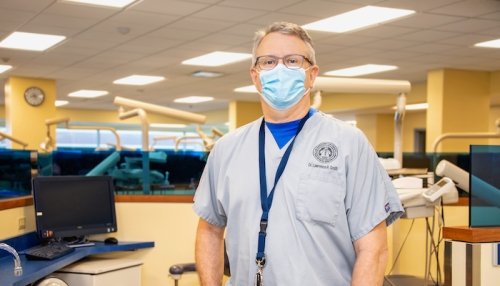Are You Grinding and Clenching Your Teeth?
Teeth grinding and clenching symptoms and how early diagnosis and treatment can help.

Teeth grinding and clenching, known as sleep bruxism, generally occurs while sleeping. While 8% of adults report experiencing this condition, many individuals are unaware that it is even occurring. Symptoms to watch for include headaches, pain to the jaw joint, tired jaw muscles, and limited jaw movement. The exact cause of bruxism is unknown, though it is shown to be more common in people who are experiencing stress and/and sleep apnea.
The biting force when grinding or clenching your teeth is three times greater than the force used when chewing food. That means that prolonged bruxism can cause damage, including shortened teeth, teeth sensitivity, or in extreme cases, the collapse of the lower half of your face. Early diagnosis and treatment is very important to help prevent further damage and eliminate the need for costly and time-consuming dental treatments to restore teeth to their normal size and proper function.
Should you be experiencing any symptoms of sleep bruxism, be sure to talk to your dental care provider. One solution may be for your dental care provider can produce a custom device, called a splint or mouth guard, to protect teeth from wear and destruction, support your jaw joint, and provide relief from muscle fatigue. These devices can be easily adjusted or replaced, making them a better recipient of biting forces.
Sidharth Mohan, B.D.S., M.S., Clinical Assistant Professor, College of Dental Medicine-Illinois.
The information contained in this article is not intended to be a substitute for professional medical advice, diagnosis, care, or treatment. Always consult a qualified healthcare provider with questions regarding any possible health condition.

